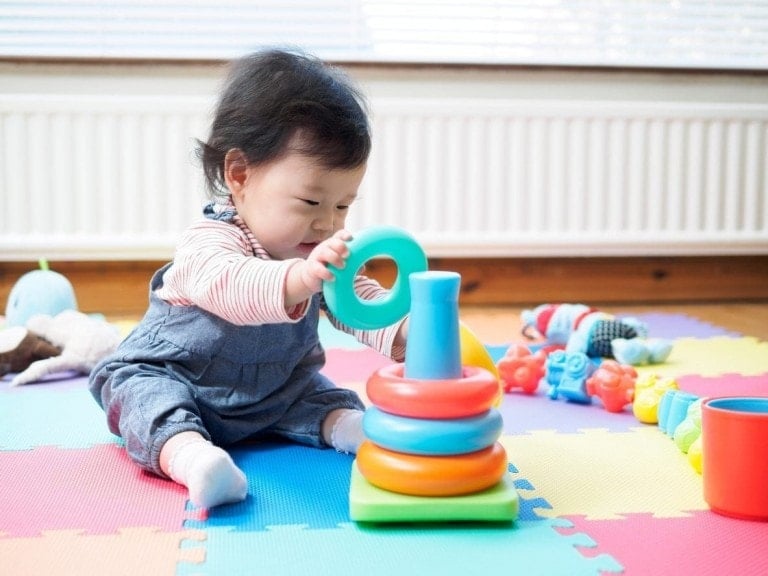No one gets into a marriage or long-term relationship thinking about divorce. We think about life plans, we feel love and affection, and we don’t think about dividing assets and child custodial arrangements if it all goes south. However, in the U.S., 40-50% of all marriages end in divorce, so, unfortunately, the reality of coping with separation is experienced by many parents.1
Even when a divorce starts amicably, the actual process of separating, divvying up belongings, untangling finances, and exploring what childcare will look like can cause immense stress and strain on parents and children.2 This pressure can influence us by making us want to compete for our fair share of things, which can make even the most cordial divorce sour.
So, How Can You Divorce Gracefully?
In general, it is about building a life where you are apart but still cooperating. This involves respectful communication and actions. Rather than point-scoring or wounding the other person, a graceful divorce focuses on compromise and working towards an end goal of a good outcome for your family. Being this emotionally mature isn’t the easiest of tasks, but it is possible. Even though the pain is raw right now, there is light at the end of the tunnel. Remember that you are not alone.
How to Talk to Your Child About Divorce
Ensure that your children know the separation is not their fault. You don’t need to share all the details about why you are divorcing, but ensure they know that you and your ex-partner still love them the same. It’s also helpful to talk to them and prepare them for changes that will be coming.
Ensure Your Child Feels Loved and Supported As You Parent Through Divorce
Make sure you spend quality time with your child(ren) and give them strategies to cope when you are separated. This could include a love letter from you and your ex that they keep with them, so at any time they are apart from the other parent, they can read their letter and know they are loved and cared for. You could even give them a transition toy or teddy that goes between houses, so they have something that always connects them. It might also help to rope in a family friend or a loved relative who keeps in touch with your child and gives them space outside of you and your ex to talk about how they are coping.
Learn How to Co-Parent with Your Partner
Firstly remember to hold your tongue and keep your child in focus. Maybe you are focused on “winning” or one-upping your partner to punish them for the separation itself, or perhaps it’s a reaction to their unpleasant behavior. Just remember, no one is winning in a separation. Least of all, our kids. Does your child need to know the ins and outs of who did what, or exactly how your partner is being unfair? No, they don’t. Regardless of you separating from your partner, they will always be your child’s other parent. And creating a divide or trying to get your child to choose sides will only hurt your child.
Our kids are always watching and will pick up on conflict. They might need reassurance that the separation is not their fault if they feel that they have somehow influenced the breakup.
Show a United Front
Don’t argue or disagree in front of your children. Your parenting roles will change, but you still need to agree on key parenting ideals and attitudes so that you don’t confuse your children or create opportunities for them to play you off of one another. Spend time having transparent conversations about what your parenting non-negotiables and rules are.
Keep Your Environment Stable
Although you might need to share custody (which means change and adjustment for your child), it’s important to keep things consistent when parenting through divorce. This could mean:
- Having the same bedtime
- Replicating certain clothes or toys in each house
- Practicing the same morning or bedtime routines
- Keeping the rules the same across households
Kids feel safe when they have a routine and know what to expect.
Consider How You Would Like to Be Communicated With
This one can be hard because there are no guarantees that your partner will treat you with the same respect. However, when you look back after everything is settled, you will be able to see that you handled things with grace and gave your ex-partner every opportunity to be heard with kindness. In this regard, you are less likely to regret or feel guilty about your actions afterward.
Focus on the End Goal, Which is Moving On
Yes, divorce can absolutely be challenging and stressful, but if you keep the end goal in mind, it’s easier not to sweat the small stuff. It also means the way you conduct yourself during proceedings will be future-oriented, and you will be able to see the current situation more clearly, or can more easily see the path you need to take to move on peacefully.
Compromise . . . to a Point
Spend some time really reflecting on what is important to you. Set your priorities for what you need during and after the divorce and what is essential (need versus want). This will likely reduce conflict as you won’t feel every negotiation has to be “won.” You can save your energy for the big-ticket items you need to compromise and work through together.
Have Healthy Boundaries
As I mentioned, even if you conduct yourself with grace and compassion, it doesn’t guarantee your ex-partner will do the same. So, it’s important to set clear and healthy boundaries. You aren’t in that relationship anymore, so your partner needs to know your new expectations. Do you need to be transparent about what time they can message you? Or how they will communicate? Do you need them to stop popping around unannounced? Be calm and clear when setting boundaries and consistent in keeping them (so you don’t muddy the waters and confuse things further).
Acknowledge the Grief and Loss
You didn’t start your relationship thinking about the end. You made plans, you had ideas for what your future might hold, and there is a lot of grief associated with losing that. Be gentle with yourself and compassionate, focusing on taking little steps away from anger, sadness, and frustration. Once you do, you will notice the relief and can hopefully move closer to acceptance and finding comfort in your co-parenting role.
Divorce is between yourself and your ex-partner; sometimes, you can feel lonely or isolated. Make sure you keep up on other meaningful social and emotional relationships as they will ensure that you still feel connected and cared for. There are also many other places to reach out for support as you parent through divorce, including online or local support groups for others going through what you are. Most importantly, don’t forget that you are not alone, and even though things are tough, you will get through this!










